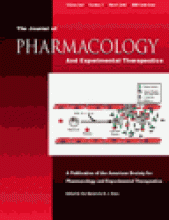Abstract
The brain is particularly sensitive to alcohol during its growth spurt period. To better understand the mechanism(s) involved, we studied the effects of ethanol on neurons freshly dissociated from the ventral tegmental area (VTA) in neonatal rats. Ethanol enhanced (35%) or depressed (45%) glycine-induced responses in VTA neurons (Ye et al., 2001a, 2001b). In this report, we investigated the role of protein kinase C (PKC) and protein kinase A (PKA) in ethanol-induced inhibition of glycine-activated current, using whole-cell patch-clamp technique. Ethanol inhibited glycine-activated current when it was coapplied with the agonist. This inhibition was enhanced when neurons were pretreated with ethanol before the subsequent coapplication of ethanol and glycine. Ethanol's inhibition of glycine-activated currents increased with the length of ethanol pretreatment time (ranging from 1 to 30 s), and reached the maximum at 30 s. However, this enhanced inhibition was not seen in the absence of internal ATP. In addition, phorbol-12-myristate-13-acetate (PMA, 100 nM), a PKC activator, markedly inhibited glycine-activated current. Blockade of PKC by chelerythrine or by PKC inhibitor peptide significantly attenuated ethanol-induced inhibition. Although partial increase of PKC activity by 1 nM PMA enhanced ethanol inhibition, pretreatment of ethanol did not increase ethanol inhibition after the neurons were treated with 100 nM PMA. These data suggest that ethanol and PKC share the same pathway to suppress glycine receptors. H-89 (1 μM), a selective PKA inhibitor, did not alter glycine-activated current or ethanol inhibition. Our observations suggest that activation of PKC (but not PKA) contributes to ethanol-induced inhibition of glycine receptors.
Footnotes
-
This study is supported by National Institute of Alcohol Abuse and Alcoholism, National Institute of Health Grant AA-11989 (to J.H.Y.).
- Abbreviations:
- GABA
- γ-aminobutyric acid
- H-89
- N-(2[methylamino]-ethyl)-5-isoquinoline sulfonamide dihydrochloride
- PKA
- cAMP-dependent protein kinase
- PKC
- protein kinase C
- PMA
- phorbol-12-myristate-13-acetate
- VTA
- ventral tegmental area
- NMDA
- N-methyl-d-aspartate
- Received August 24, 2001.
- Accepted November 23, 2001.
- The American Society for Pharmacology and Experimental Therapeutics
JPET articles become freely available 12 months after publication, and remain freely available for 5 years.Non-open access articles that fall outside this five year window are available only to institutional subscribers and current ASPET members, or through the article purchase feature at the bottom of the page.
|






